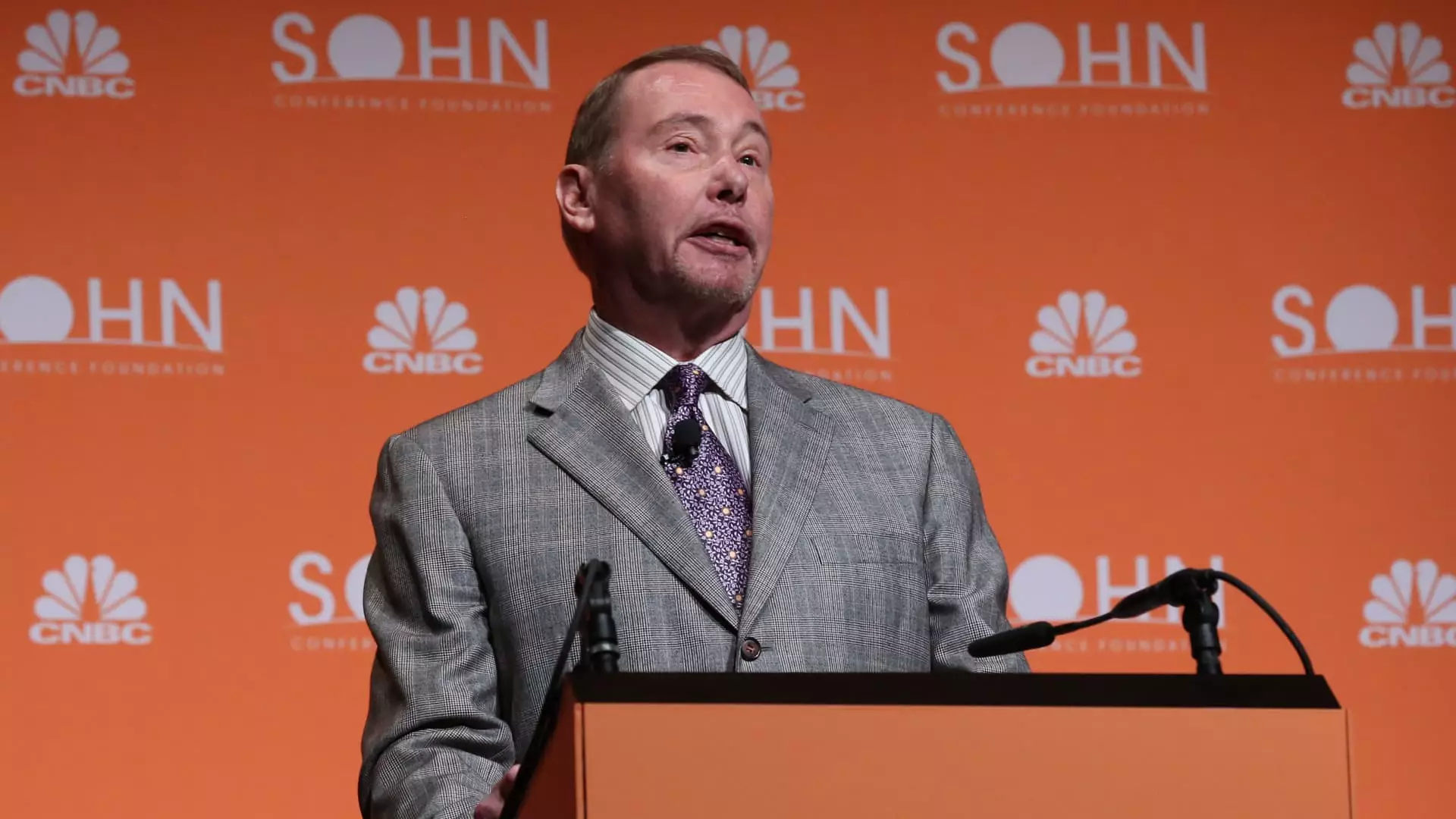The economic landscape in the United States is often shaped by the interplay of political dynamics and monetary policy. Recent comments from Jeffrey Gundlach, CEO of DoubleLine Capital, have sparked conversation around the potential effects of a Republican-controlled House, particularly in light of a Trump presidency. Gundlach’s perspective highlights the intricate relationships between government spending, debt levels, and interest rates, suggesting that political shifts could have profound economic repercussions.
Gundlach warns that if Republicans solidify their control of the House of Representatives, it could lead to heightened government spending. Such fiscal maneuvers would inevitably require additional borrowing to finance these initiatives. This projection raises concerns about the sustainability of national debt, which stands at a staggering $36 trillion. As the government seeks increased Treasury issuance to accommodate its spending plans, investors may face upward pressure on bond yields, particularly in the long-term segment of the market. The anticipated rise in interest rates may also compel a response from the Federal Reserve, whose monetary policy decisions play a pivotal role in shaping economic conditions.
Gundlach’s apprehensions are compounded by the recent fiscal year-end outcome, which saw the U.S. government grappling with a budget deficit exceeding $1.8 trillion. Notably, more than $1.1 trillion of this deficit was earmarked for financing costs associated with the national debt. The implications of such a deficit are manifold, as they threaten to erode fiscal stability and limit the government’s flexibility to respond to future economic shocks. The projected cuts to taxes championed by Trump may further exacerbate the national debt, putting pressure on financial markets and local economies alike.
Despite the alarming fiscal outlook, Gundlach posits that the Trump administration may actually reduce the likelihood of an impending recession. According to him, the pro-cyclical nature of Trump’s policies could spur economic activity, making recession predictions less palpable. However, this optimism comes with caveats. The fiscal stimulus may yield short-term growth, but with it comes the specter of long-term fiscal challenges. Therefore, businesses and investors must navigate this duality—anticipating both potential economic growth and the burden of increased debt.
The economic foresight provided by Jeffrey Gundlach underscores the complex relationship between governance, fiscal policy, and bond markets. As the Trump administration presumably ramps up spending, the resultant effects on interest rates and inflation become critical considerations for investors. The political landscape is ever-evolving, and as Republicans potentially gain additional power, understanding these dynamics will be essential for making informed financial decisions. The unfolding events represent more than just a political commentary; they may redefine the contours of the U.S. economy for years to come.

